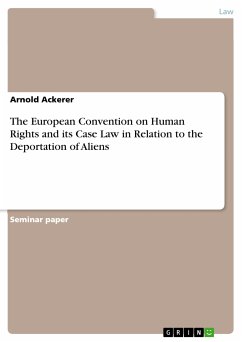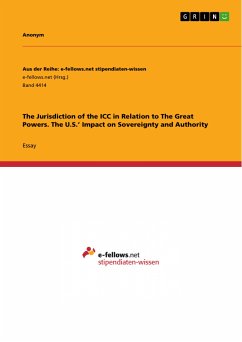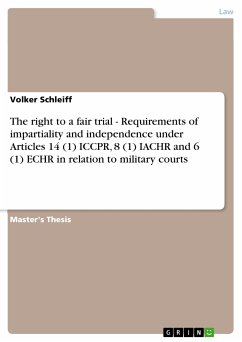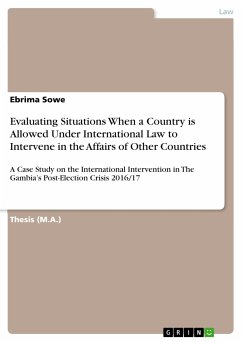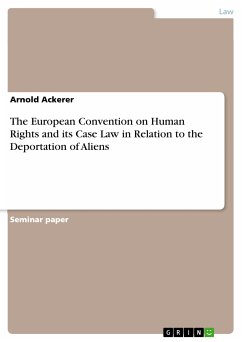
The European Convention on Human Rights and its Case Law in Relation to the Deportation of Aliens (eBook, PDF)

PAYBACK Punkte
0 °P sammeln!
Seminar paper from the year 2005 in the subject Law - European and International Law, Intellectual Properties, grade: A, Hiroshima University (International Law), course: International Law, language: English, abstract: To learn from the atrocities committed during the Second World War and to avoid their reoccurrence was the declared aim of all nations after the WW II was over and the Axis powers had been defeated. Once and for all it had become clear that the protection of human rights could not be regarded as any nation´s internal affairs. In Europe, Nazi-Germany served as a deterring case h...
Seminar paper from the year 2005 in the subject Law - European and International Law, Intellectual Properties, grade: A, Hiroshima University (International Law), course: International Law, language: English, abstract: To learn from the atrocities committed during the Second World War and to avoid their reoccurrence was the declared aim of all nations after the WW II was over and the Axis powers had been defeated. Once and for all it had become clear that the protection of human rights could not be regarded as any nation´s internal affairs. In Europe, Nazi-Germany served as a deterring case how a national regime could impose progressively worse treatments (from discriminations to genocide) on certain minorities, if no outside control provided an ultimate safeguard.The aim of the international law treaties signed inside Europe after WWII was to provide exactly such a safeguard and to integrate defeating and defeated countries into binding cooperation. One such cooperation took the form of the European Communities (most prominently the EC), another one the form of the Council of Europe (the organization drafting and controlling the European Convention on Human Rights (henceforth: convention)). In this paper using the issue of deportation of aliens I want to provide an overview on the position of a typical European country like Austria in regard to the obligation derived from the convention institution´s case law.





